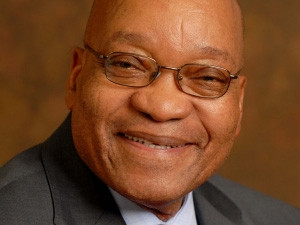
The Presidential Review Commission's recommendations that state-owned entities (SOEs) be trimmed and brought under the umbrella of an overarching law is a good start, but there are concerns that the process may flounder and benefits will not be realised.
Minister in the Presidency Collins Chabane yesterday released the committee's reports, and explained it was set up to strengthen the role of state-owned entities and improve policy governing these institutions.
The goal of the review was to "achieve a balance between national developmental and transformation objectives, improved governance, improved performance, and improved service delivery, as well as to achieve sustainable viability of SOEs in alignment with the developmental state aspirations," said Chabane.
"The recommendations seek to ensure SOEs are modernised and are positioned to be efficient and effective in accelerating the country's growth and development aspirations," said Chabane. He noted the committee recommends major reforms to strengthen SOEs.
Developmental aims
Among its 31 recommendations is that the state should develop an overarching, long-term strategy for SOEs. The entities should also be consolidated and rationalised as needed, it said.
President Jacob Zuma established the committee in response to the need to improve SOE policy and strengthen the role of SOEs in society in general, and in the economy in particular, and to ensure SOEs respond to a clearly defined public mandate and support developmental state aspirations.
The review found there are more than 700 SOEs, up from the 300 initially thought after subsidiaries were also taken into account. There have been suggestions that the state's telecoms investments, such as wholly-owned Sentech and Broadband Infraco, be merged to avoid duplications, although Sentech has since handed back its spectrum, intended for its national wireless network.
The committee also recommends that government create an enabling environment for SOEs and develop the State-Owned Entities Act in a bid to trim the compliance burden. It also recommends longer-term employment contracts to manage sustainable development and retention of skills.
Several entities, including the State IT Agency (SITA), have seen CEOs leave well before the completion of their term. SITA is set to announce its 17th head today, another acting CEO, after Blake Mosley-Lefatola's early departure.
In addition, the committee said a framework for collaboration should be developed, and a common performance management system be developed. There should also be a critical strategic review every five years.
Government should also rationalise its holdings by focusing on SOEs that provide public goods and are deemed to be strategic, the committee recommends. It says the state should exit from sectors where market failure no longer exists, or can be serviced by the private sector, and it should divest from entities that are underperforming.
The state should also consider listing some SOEs on the JSE and institute a flexible policy that discourages SOEs from raising private funds to provide capital as it seeks a greater mix of debt and equity finance.
The report also recommends turning selected SOEs into "national world-class" state and commercial flagships, and addressing the issue of non-financially viable commercial SOEs. The report, which has been accepted by Cabinet, will lead to the creation of an inter-ministerial committee that will examine its recommendations and make further suggestions to Cabinet for implementation.
Long road ahead
ICT industry veteran Adrian Schofield says the recommendations may well provide a way forward, but only if the political will exists to create and execute the mandate without interference.
"It is likely that the current holders of the portfolios will not be keen to lose the 'responsibility' for 'their' SOEs, and maybe executives of the SOEs will not be keen to fall under more watchful eyes where their performance will come under close scrutiny. There are many potential obstructions before the recommendations can be turned into implementation."
Mark Walker, director of insights and verticals for the IDC's Africa and Turkey region, adds that the review, which was long overdue, shows government is serious. However, while SA is good at making laws, it is slack at executing and monitoring them, he adds.
Walker says the proposals will be challenging for SOEs, some of which will require "a lot of cleaning up shop". He says the recommendations are heading in the right direction and the committee's concerns are valid, but government now has to set up a strong inter-ministerial committee and pull off the recommendations.
The committee proposed a phased implementation approach: short-term (up to two years), medium-term (five-year period) and long-term (full implementation of all reforms).
Share